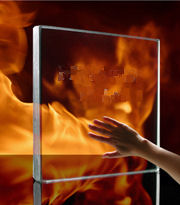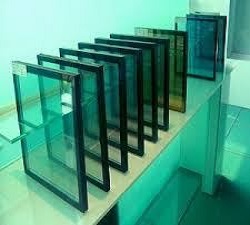The areas of application for integrity-only or integrity and insulation performance are given in the appropriate guidance to the Regulations, or in the appropriate design report if the building is subject to a fire safety engineering study.
Fire-resistant glass is normally used to prevent fire spread and to provide a safe escape route and safe access for fire-fighters. The national documents providing guidance on how to meet Building Regulations (e.g. Approved Document B for England and Wales) show where fire-resistant barriers are required. If an alternative approach has been taken to demonstrate compliance with Building Regulations, such as a fire safety engineering design study, then the applications for fire-resistant glass must be specified in the appropriate design report.
The specified glazed system must have appropriate evidence of performance based on appropriate test information. This evidence may be provided either in a test report, or in an assessment report or by third party certification. The test evidence that is provided must be appropriate to both the application and the specific glazed system that is to be installed.
Fire certificates are provided by the Fire Service to approve certain premises and are not applicable to individual products, systems, assemblies or installations. Under new Regulations, fire certificates are to be phased out during 2006 and replaced by making the Responsible Person, i.e. the building or business owner, responsible for ensuring that appropriate fire precautions and safety measures are
in place. Product certificates may be referred to in the context of third-party certification schemes, but these are voluntary and not obligatory. The appropriate evidence of performance for a fire-resistant glazed system is normally a test or an assessment report, which must be provided by the supplier on requests.
Standard toughened glass is not able to withstand the thermal shock generated during a fire and it must not be used where fire-resistant barriers are required.
There are a number of specially modified toughened soda-lime glass types available for fire-resistant applications in very specific framing systems, or special glass compositions such as toughened borosilicates that can be used, but both types are strictly subject to manufacturers’ specific guidance on their use.
Never make assumptions. In all cases appropriate proof of performance must be available related to appropriate test evidence.b
The pane size will vary according to the glass and framing system, always subject to the availability of appropriate test evidence. In every case, contact the glass manufacturer or supplier for the maximum glass sizes tested and the associated framing system details.
Different glass types will require different amounts of edge cover according to their individual requirements. Manufacturers/suppliers will provide appropriate guidance,
which must be followed. Modified toughened soda-lime glasses are particularly sensitive to edge cover which is generally a maximum of 10mm cover. If the edge cover is too great for this type of glass then premature failure is far more likely.


Normal glazing codes of practice must be followed. Glass in any application must never be glazed tightly. Expansion allowances can be especially critical for modified toughened soda-lime glass types. The glass manufacturer/supplier will define expansion allowance required.
PVB laminated safety glass does not have any fire-resistant properties and it must not be used in fire-resistant applications. Safety glass types with fire-resistant properties are available, based upon special inter-layers.
Only limited increases in tested pane sizes are allowed, according to assessment. The evidence provided by the glass manufacturer/supplier will provide the maximum pane size allowed for each particular system.
This is only possible if there is test evidence that the modified dimension meets the
fire-resistance performance. Details will be made available by the glass manufacturer/
supplier.
This information can only be identified by reference to the approved glazing systems, and the size of bead will vary according to the glass and system chosen.
Normal glazing codes of practice must be followed. Glass in any application must never be glazed tightly. Expansion allowances can be especially critical for modified toughened soda-lime glass types. The glass manufacturer/supplier will define expansion allowance required.
Key Considerations for Glazing in Fire-Resistant Timber Doors
Glazing seals must be suitable for the specific system based on test evidence, with standard ones not used for fire-resistant glazing.
The size of glass installed in a timber fire door leaf depends on the door leaf and glazing system used. Manufacturers’ guidelines must be followed when cutting apertures to prevent compromising fire-resistance.
Various shapes of vision panels can be used in a door leaf, depending on the available evidence for the door leaf and glazing system.
Different timber species can affect fire-resistance; any substitution must be supported by fire test evidence.
The smallest frame section in a timber glazed system depends on its compatibility with the fire-resistant glass, identified in the fire test report or from the glass manufacturer.
Square timber beads can be used for fire-resistant glazing, particularly for insulation glass types, with performance evidence necessary for integrity-only and partial insulation types.
Areas We Cover Include:
Opening Hours:
Open 24 Hours, 7 Days a Week
For Emergencies – 086 606 0555
Phone:
(01) 453 2622 (Dublin Central)
(01) 821 6222
Email: info@crystalglazing.com
Address:
Dublin, Ireland
Like Our Page:
Copyright © 2023 CRYSTAL GLAZING - All Rights reserved